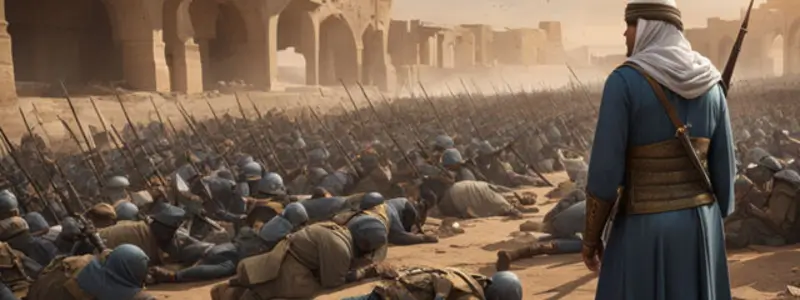The Tragedy of Karbala: Thirst, Suffering, and Unyielding Spirit
The story of Karbala is a profound tragedy that has left an indelible mark on the hearts of millions. It is a tale of immense suffering, unyielding spirit, and ultimate sacrifice. At its core, it centers on the confrontation between Yazid, the son of Muawiyah ibn Abu Sufyan, and Imam Hussain (a.s), the grandson of the Prophet Muhammad (sa). Yazid sought to compel Imam Hussain to pledge allegiance to him as the Caliph of Islam, an act that Imam Hussain refused, leading to one of the most heart-wrenching episodes in Islamic history.

Yazid and His Lineage
Yazid’s lineage is often viewed with contempt in Islamic history. His grandfather, Abu Sufyan, and grandmother, Hind, were staunch adversaries of Islam. His father, Muawiyah, was a known enemy of Imam Ali (a.s) and broke the treaty with Imam Hasan (a.s) by appointing Yazid as his successor. Yazid himself was notorious for his debauchery and disregard for Islamic principles. His ascension to power marked a dark period for the Muslim community.
The Battle of Karbala
Yazid’s ambition to solidify his rule by eliminating the Prophet’s household culminated in the Battle of Karbala. This battle, remembered for its brutality and the unparalleled sacrifices of Imam Hussain and his family, remains a poignant reminder of the struggle for justice and righteousness. Imam Hussain’s steadfastness and refusal to bow to tyranny continue to inspire people of all faiths.
The Month of Muharram and Its Significance
Muharram, the first month of the Islamic calendar, is a period of deep reflection and mourning for Muslims worldwide. It commemorates the martyrdom of Imam Hussain and his family in Karbala, symbolizing the eternal struggle against oppression and injustice.
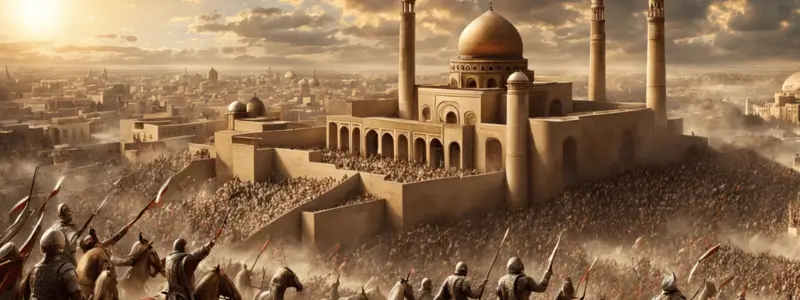
The Background
After the passing of the Prophet Muhammad (sa), the Muslim community was led by four successors: Hazrat Abu Bakr (ra), Hazrat Umar (ra), Hazrat Uthman (ra), and Hazrat Ali (ra). With the martyrdom of Hazrat Ali, the era of the Rightly Guided Caliphs ended. Muawiyah claimed leadership and named his son, Yazid, as his successor, contrary to Islamic principles.
In 60 AH, following Muawiyah’s death, Yazid’s rule was met with resistance. Prominent figures like Imam Hussain (ra), Hazrat Abdullah bin Umar (ra), and Hazrat Abdullah bin Zubair (ra) refused to pledge allegiance, believing that leadership should be determined by the people.
The Journey to Karbala
Yazid’s governor in Madinah was instructed to secure allegiance from these leaders. Imam Hussain (ra) and Hazrat Abdullah bin Zubair (ra) chose to migrate to Makkah. The people of Kufa, opposing Yazid, invited Imam Hussain to lead them. He sent his cousin, Muslim bin Aqil (ra), to Kufa, where he was initially welcomed. However, Yazid’s new governor, Ibn Ziyad, quickly quashed the uprising, resulting in Muslim bin Aqil’s martyrdom.
Despite knowing the dangers, Imam Hussain continued his journey to Kufa. He was joined by many followers who later, realizing the gravity of the situation, were given the choice to leave, and many did.
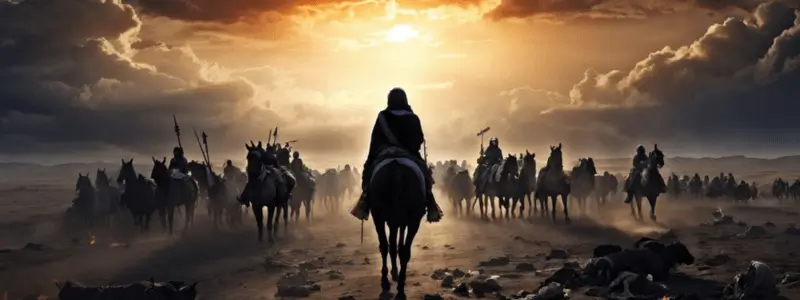
The Siege at Karbala
Yazid dispatched an army to intercept Imam Hussain. Near Kufa, Hurr bin Yazid confronted him, and Imam Hussain insisted he was invited by the Kufans. They were forced to camp in the barren land of Karbala, where they were deprived of water and shelter.
On the third day of Muharram, Amr bin Sa’d arrived with orders to compel Imam Hussain to pledge allegiance to Yazid. Despite severe oppression, Imam Hussain refused. By the seventh of Muharram, Yazid’s forces had cut off their access to water, leading to immense suffering.
Thirst and Suffering in Imam Hussain’s Camp
The ninth day of Muharram brought unbearable hardship. The camp had been without water for three days, leading to severe thirst and suffering, especially among the children. Imam Hussain’s daughter, Sukaynah, vividly described the agony of her six-month-old brother, Ali al-Asghar, who cried incessantly from thirst.
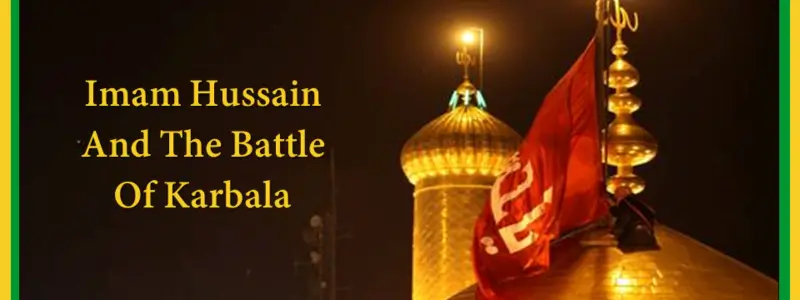
Attempt to Secure Water
Burair al-Hamadani, a loyal companion of Imam Hussain, made a desperate attempt to fetch water from the Euphrates, guarded by the enemy. Despite managing to fill a water bag, an altercation ensued, and an arrow pierced the bag, spilling the water. Even when they managed to bring some water back, it was accidentally spilled in the chaos.
Defensive Measures and Confrontation
To prevent a sneak attack, Imam Hussain ordered a trench to be dug around the camp and filled with firewood, which was then lit. When mocked by an enemy soldier, Imam Hussain’s brother, Abbas, tried to understand their aggression. The enemy’s demand for allegiance was again refused.
Persuasion and Appeals
Despite heartfelt pleas from Abbas and his companions, only a few soldiers were moved by the innocence of the children and the righteousness of Imam Hussain’s cause. Some defected to Imam Hussain’s side, recognizing the injustice.
A Night of Reflection and Defection
Imam Hussain granted the enemy a night’s respite, hoping they would reflect on their actions. During this time, soldiers like Qurra bin Qeis and al-Hurr, tormented by guilt, defected to Imam Hussain’s camp.
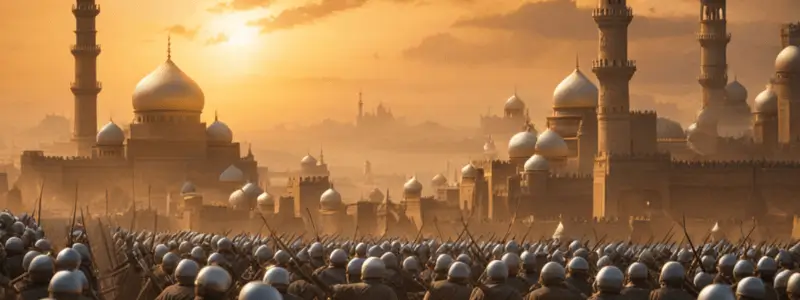
Resolute Companions
In a powerful speech, Imam Hussain released his companions from their pledge, urging them to leave if they wished. However, his companions remained resolute, choosing to stay and defend him. Their unwavering loyalty and courage exemplified their commitment to justice.
Unyielding Spirit and Devotion
Despite the looming threat, Imam Hussain’s camp was filled with a spirit of steadfastness and devotion. The companions encouraged each other, and even the women prepared their children for the impending battle.
Imam Hussain's Courageous Final Battle
On the morning of the 10th of Muharram, Imam Hussain (ra) and his 72 companions faced an army of 4,000. Before the battle, Imam Hussain (ra) prayed and demanded safe passage once more, but the enemy insisted on allegiance to Yazid. The battle ensued, and Imam Hussain’s (ra) companions embraced martyrdom one by one. Imam Hussain (ra) fought valiantly until his last breath.
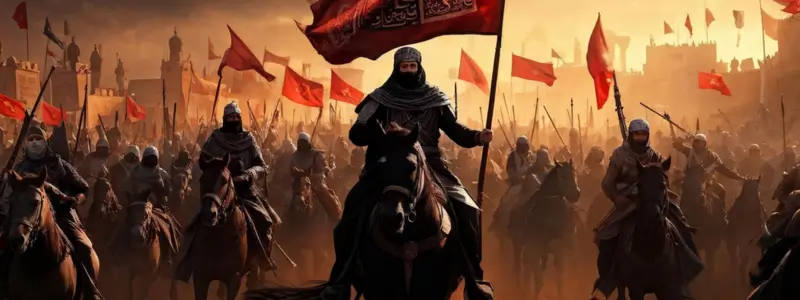
The Aftermath
After his martyrdom, Yazid’s soldiers dishonored Imam Hussain’s (ra) caravan, looting and trampling over his body. Hazrat Imam Hussain (ra) endured numerous wounds, and his head was severed and sent to Yazid.
Commemorating the 10th of Muharram
Muslims worldwide remember this deeply sad event on the 10th of Muharram. Imam Hussain (ra) stood bravely against Yazid’s oppression, offering the ultimate sacrifice to uphold Qur’anic principles.
His Holiness Hazrat Mirza Masroor Ahmad (aba), the Worldwide Head of the Ahmadiyya Muslim Community, reminds us that Hazrat Imam Hussain (ra) demonstrated patience and steadfastness, showing the pathway to paradise. He encourages Muslims to send salutations upon the Holy Prophet (sa) and his family, strive for personal purity, and show steadfastness when faced with adversaries. Invoking blessings on the Holy Prophet (sa) is essential for the acceptance of prayers, and during Muharram, particular attention should be given to this practice.
The Deeper Significance of Imam Hussain’s Sacrifice
The martyrdom of Imam Hussain (ra), his family, and companions not only served as a divine sacrifice to ensure the establishment and preservation of religion but also revealed the most perfect pathway to unlocking the divine potential within the human spirit. By following his spiritual pathway, we can reach the highest peaks of human perfection. Imam Hussain’s life and martyrdom serve as a key to unlocking the long-forgotten treasures divinely gifted to humanity.
In remembering the tragedy of Karbala, we honor the unyielding spirit of Imam Hussain and his companions, whose sacrifices continue to inspire and guide us in the pursuit of justice and righteousness
